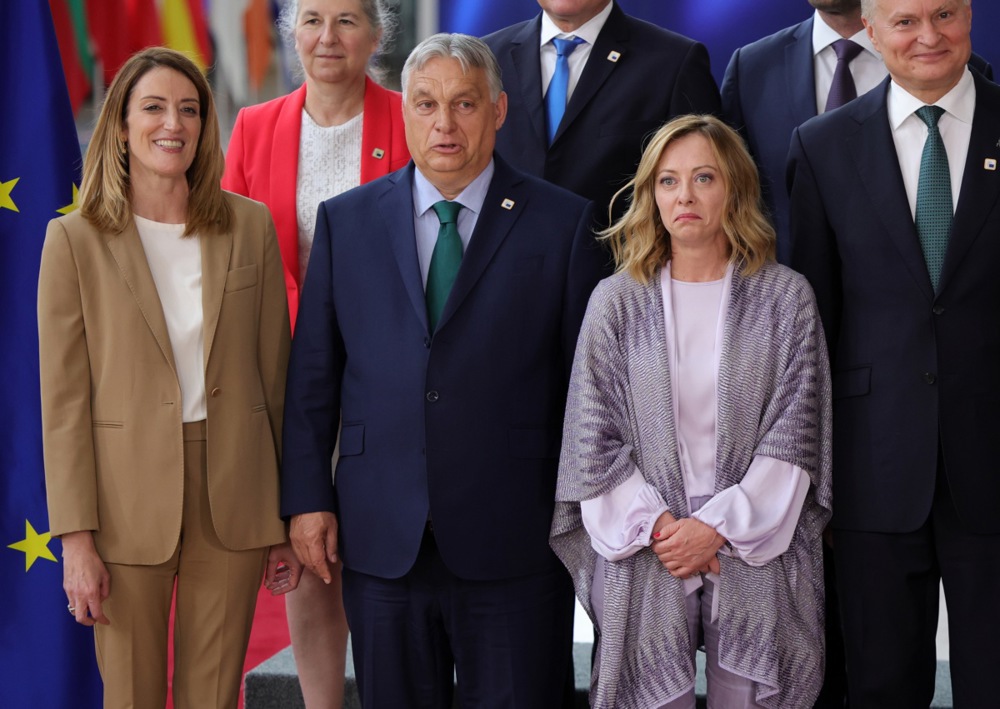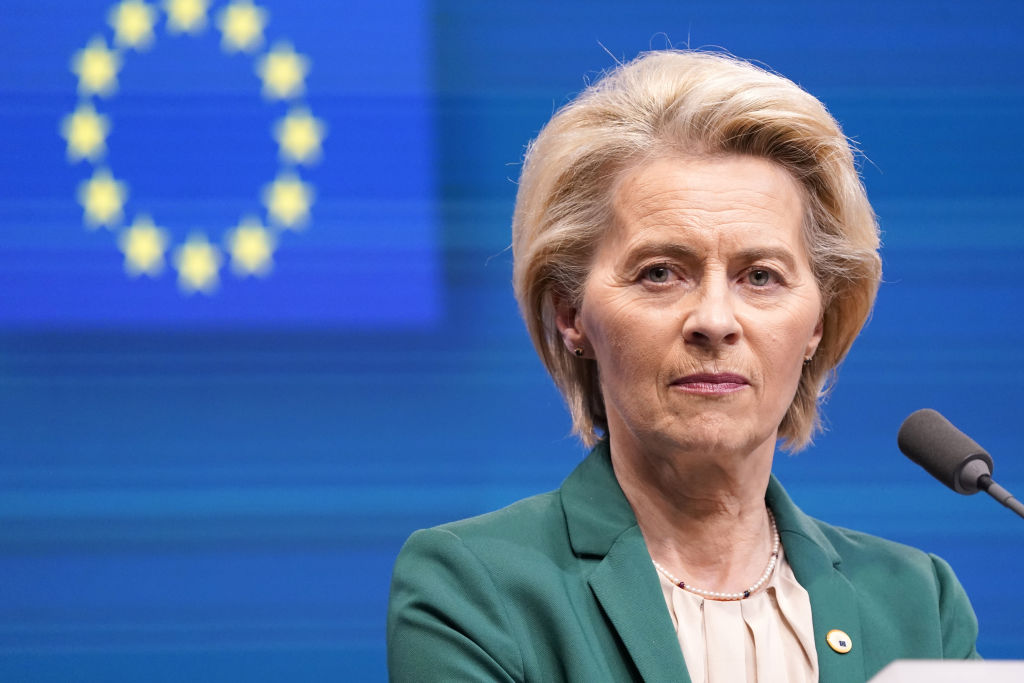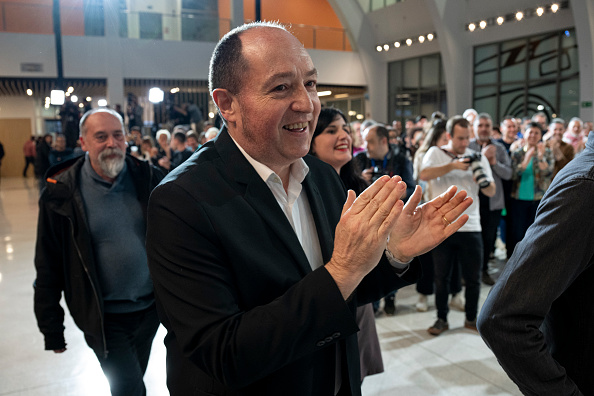The first cracks in the European Parliament’s “cordon sanitaire,” the refusal to work with hard-right parties, appeared on September 19 after a vote on democracy in Venezuela.
Much to the ire of left-wing parties, the centre-right European People’s Party (EPP) sided with the European Conservatives and Reformists (ECR) and Patriots for Europe on a resolution to recognise Edmundo González Urrutia as the “legitimate and democratically elected President of Venezuela”.
There was a clear majority: 309 MEPs voted in favour, 201 against and 12 abstained.
The resolution stated: “The EU should do its utmost to ensure that Edmundo González Urrutia, the legitimate and democratically elected President of Venezuela, can take office on 10 January 2025.”
As a result, the Parliament’s position is that it “strongly condemns and fully rejects the electoral fraud orchestrated by the regime-controlled National Electoral Council, which refused to make public the official result”.
The resolution also strongly condemned the Venezuelan Government’s issuance of an arrest warrant for González.
It was the first time the EPP had voted together with the ECR and the Patriots for Europe rather than siding with Socialists, Greens and Liberals.
Those left-wing parties reacted furiously.
The Liberal, pro-European political group Renew Europe issued a press release stating: “Renew stands with Venezuelan opposition, not with the far-right.
“‘Patriots’ do not have in mind the interest of Venezuela’s opposition. Renew Europe won’t take part in this far-right playbook and decided as a group to voice their protest instead.
“We stand with the opposition and democracy, contrary to the far-right. That is why we refuse any normalisation of divisive rhetoric and policies that are fundamentally at odds with the principles of tolerance and respect for diversity,” the group said.
“Renew Europe calls for a return to the political centre in the European Parliament and a reaffirmation to democratic and liberal values that promote inclusivity and cooperation. Geopolitical affirmations must be crafted from the centre, between democrats.”
NO to alliances with the far right!
At @RenewEurope, we decided to remove and raise our voting cards to not participate in the vote of a resolution @EPPGroup co-signed with the group @PatriotsEP of Orbán and Vlaams Belang.
Democrats cannot give in. pic.twitter.com/KjCIGZqBv3
— Sophie Wilmès (@Sophie_Wilmes) September 19, 2024
Similarly, the Socialists and Democrats (S&D) denounced the EPP’s decision “to team up with the extreme right”.
“With this decision, the EPP is showing its true face by breaking its commitment to respect the cordon sanitaire and normalising anti-European extremist groups in the European Parliament.
“The people of Venezuela deserve more than this; they should not be pawns for the EPP’s political games!,” the S&D concluded.
Javi López, European Parliament vice-president and S&D negotiator on the resolution, said: “The EPP has decided to build on an agreement on Venezuela with Meloni, Orbán and Le Pen, together with the support of the German far right, instead of with the pro-European groups.”
Yannis Maniatis, vice-president of the S&D Group added: “The EPP is normalising extremist views in our societies and is guilty of undermining the European Union and its hard-fought values.”
⚠️ The EPP has decided to build on an agreement on Venezuela with Meloni, Orbán and Le Pen, together with the support of the German far right, instead of with the pro-European groups.
The people of Venezuela deserve better!@Yannis_Maniatis @javilopezEU https://t.co/qu4TSvo3Cj— S&D Group (@TheProgressives) September 19, 2024
Diana Riba i Giner, vice chair of the Greens, noted: “EPP has approved a resolution on Venezuela with [the] far right. They have not only voted with them, they have proactively negotiated a common text with those who want the end of the EU. Without a cordon sanitaire, not only are our rights and freedoms at stake but the very EU itself.”
On the Right, the atmosphere was more upbeat.
EPP and ECR remained quiet about the vote but Patriots for Europe and the Europe of Sovereign Nations Group saw it as a sign of change.
Kinga Gál, the first vice-president of the Patriots for Europe in the EP, from Hungary, called it the “first big success of the conservative right in the European Parliament”.
“Left-wing parties are upset because the right-wing groups in the EP jointly adopted a resolution, which condemns the Maduro regime’s actions in Venezuela including electoral fraud, the persecution of the democratic opposition and the murder of innocent Venezuelan people.
“For them, upholding the undemocratic cordon sanitaire is more important,” Gál said.
The Spanish vice-president of the same group, Herman Tertsch, described the resolution as “a very important sign of support for the peaceful fight of Venezuelans for the end of the cruel and criminal tyranny”.
He added that the vote was “a spectacular sign of the changing times in Europe and its EU Parliament”.
He continued: “For the first time, it becomes patent and visible that there are other possible majorities than the failed and destructive one that the People’s Party and the losers in the left maintain after the very clear results in opposite direction of the election on the 9 of June.
“I am specially happy to see that the anti-democratic, unjust and perverse figure of the so-called ‘cordón sanitaire’ against many of our parties and groups vanished,” he added.
“The firewall is crumbling. We can free Europe from the grip of the Left and the Greens”, Alexander Sell, of the Sovereign Nations Group said.
“The wind is changing in the European Parliament. The future belongs to us.”
The odd thing is, these self-declared superdemocrats don't have any problem at all to cooperate with the marxists and communists in the European Parliament. What is really behind this pathetic political manoeuvre: the liberals lost the elections. There are new kids on the block.… https://t.co/hSO8qzjWc8
— Tom Vandendriessche (@TomVandendriese) September 19, 2024





